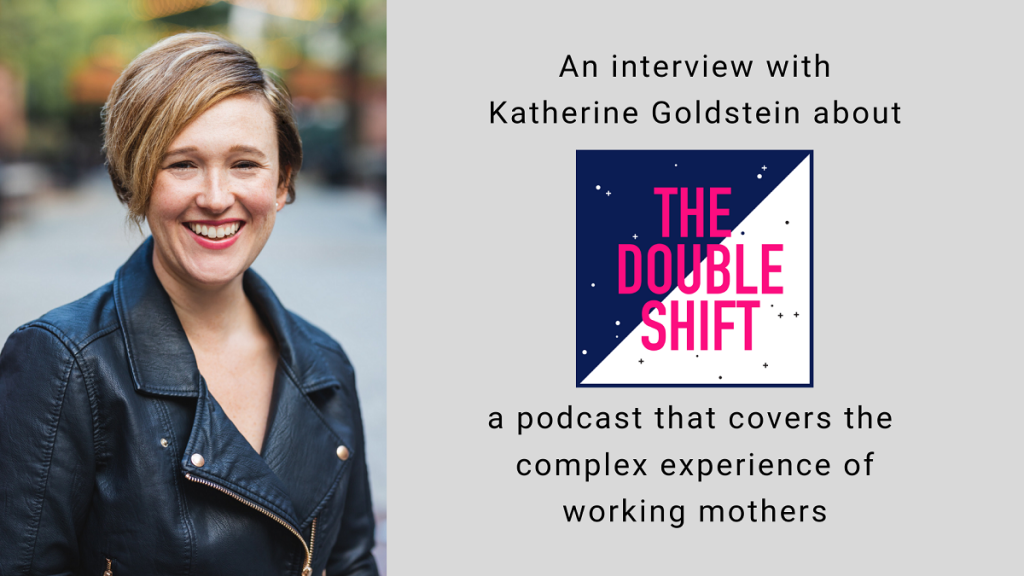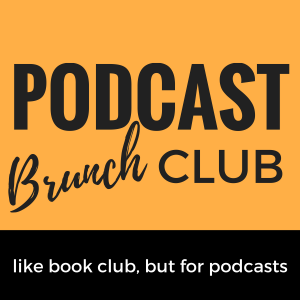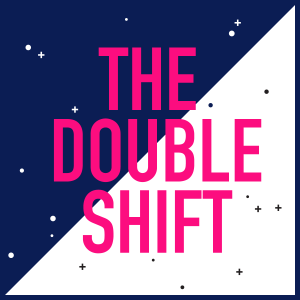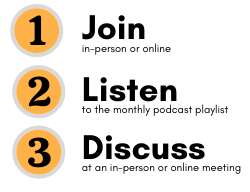‘The Double Shift’ Shines a Light on Working Moms
by Jenna Spinelle on February 26, 2019.


As jobs become more demanding and the cost of daycare continues to rise, working moms face bigger challenges today than at perhaps any other time in modern history. However, that does not mean they need to sit back and let the pressure of work and motherhood overcome them. Instead, some are taking it all in stride and figuring out how to rewrite the definition of working mom on their terms.
Journalist Katherine Goldstein started The Double Shift to tell those stories and shine a light on the experience of being a working mother in 2019. Unlike other “mom” podcasts, this one is not about parenting tips or the latest trends in children’s products. Instead, it focuses on mothers across the United States who are trying to balance work and family in our hyperconnected world.
The show launched on the Critical Frequency network in February, and I caught up with Katherine to learn more:
Why did you want to start The Double Shift?
Katherine: About two years ago, I turned my journalistic attention to issues facing working moms in America. In general, it’s shocking that there is not that much rigorous journalism that covers the complex experience of being a working mother. The subject is SO rich and touches economics, public policy, discrimination, gender equality, the future of work and social norms. I truly believe if we bring mothers out of the social and economic marginalization we face it will have a BIG impact on society. I want to try to get at these issues through compelling storytelling, and to me, a podcast is a way to deeply connect with an audience and have a longer, more ongoing conversation.
It seems like there are a lot of mom-oriented podcasts out there already. What does this one bring to the table that’s unique?
Katherine: There are a lot of podcasts that are aimed at moms that are chat shows or interview shows. A vast majority of them focus on parenting issues or general “tips and tricks.” The Double Shift doesn’t do any of that. We are founded on the radical notion that moms have important identities and concerns beyond their kids. We believe the subject of working moms deserves real reporting and journalistic seriousness, and that’s why we focus on stories you really haven’t heard before. We break out of the dominant conversation about working motherhood that usually centers on middle class, white collar, and big city people. Also, a lot of podcasts focus on highly successful moms at the top of their fields. Those people can have interesting stories, but often have a level of privilege that’s not representative of most working moms. The Double Shift wants to find stories that break out of those molds.
How did you find the mothers to feature in each episode?
Katherine: We work hard to find great subjects, and almost none of the moms featured in the first season I knew before the podcast. Some people came recommended to us through friends of the show, but some, like Nydia Sanchez, who runs the 24 hour daycare we profiled in episode 2 we found through good ole shoe-leather reporting. We really wanted to do a story about overnight daycare, and our producer started cold calling daycares in Las Vegas that said they had extended hours until we found the amazing Nydia.
Everyone’s experience of motherhood is so unique. How do you find themes that will resonate among a wide range of people?
Katherine: I believe the personal can be universal. So a general, almost cliche topic for moms is how to not lose yourself and your identity after having a kid. If you consume mom media, this idea comes up regularly. But rather than micro advice, like “set time to reconnect with friends or your hobbies,” we want to inject brand new ideas of what that looks like. Our first episode, Punk Rock Rabbi, is all about not conforming to what others think pregnant people and mothers should be doing. We featured the front woman of the band The Shondes, Louisa Rachel Solomon, and opened the show with her going down a water slide while 8 months pregnant and on tour with her punk band. That specific experience might not be precisely relatable to everyone, but it’s a colorful example and the themes of creative freedom and the expectations we put on pregnant people is something a lot of women can relate to. She also talks about how to continue doing what you love when money is an object, which we don’t hear about nearly enough in the context of becoming a parent.
What do you hope people take from the show?
Katherine: I hope the show deeply challenges how society sees mothers and also how we see ourselves. I also want to moms to connect with each other and get inspired by new ways of thinking about some of the big challenges we face.
Has working on the show changed your own views about motherhood?
Katherine: I think working on this show has made me way less hard on myself as a mom. What we put working mothers through is this country is crazy. Our society makes it very easy to feel like you aren’t doing a good job as a mom. Working on this show has definitely made me understand how universal this pressure is, more easily identify it, and not let it bother me nearly as much.
What can we expect from the rest of this season?
Katherine: I am so excited for what we have cooking. Our third episode is an amazing, intimate documentary about what it’s like to run for office with little kids, which was pretty taboo until very recently and is key to exploring if we want to see more women running for office. We have a great episode in the works about working mothers in legal brothels in Nevada that I learned so much from. And I’m also doing a episode about some of my own pretty tough experiences as a working mom to help listeners get to know me a little more.





